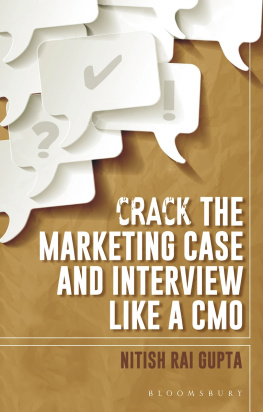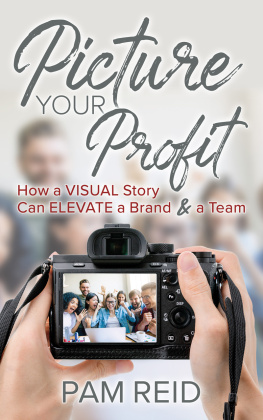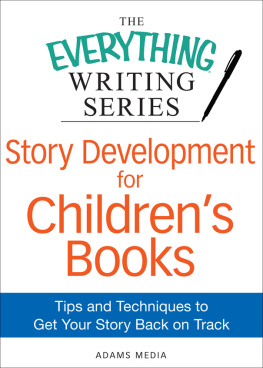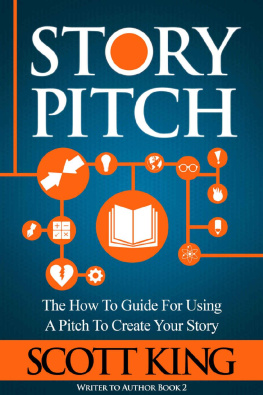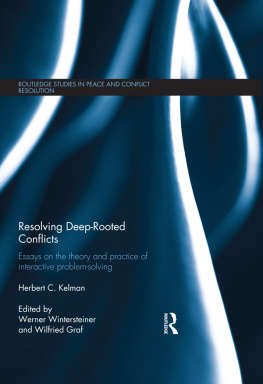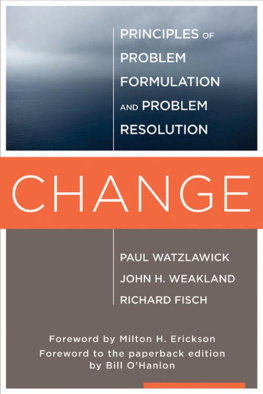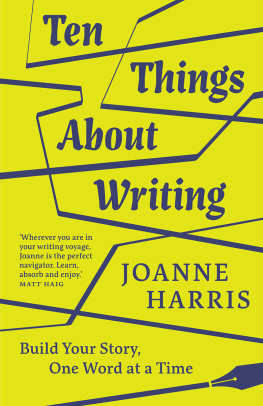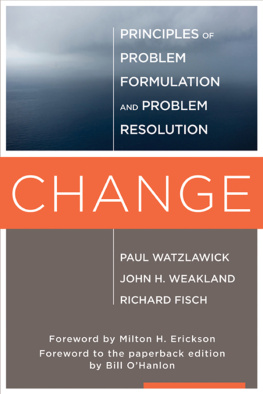Baboulene - The Story Book - a writers guide to story development, principles, problem resolution and marketing
Here you can read online Baboulene - The Story Book - a writers guide to story development, principles, problem resolution and marketing full text of the book (entire story) in english for free. Download pdf and epub, get meaning, cover and reviews about this ebook. year: 2010, publisher: Dreamengine Media Ltd, genre: Art. Description of the work, (preface) as well as reviews are available. Best literature library LitArk.com created for fans of good reading and offers a wide selection of genres:
Romance novel
Science fiction
Adventure
Detective
Science
History
Home and family
Prose
Art
Politics
Computer
Non-fiction
Religion
Business
Children
Humor
Choose a favorite category and find really read worthwhile books. Enjoy immersion in the world of imagination, feel the emotions of the characters or learn something new for yourself, make an fascinating discovery.
- Book:The Story Book - a writers guide to story development, principles, problem resolution and marketing
- Author:
- Publisher:Dreamengine Media Ltd
- Genre:
- Year:2010
- Rating:3 / 5
- Favourites:Add to favourites
- Your mark:
- 60
- 1
- 2
- 3
- 4
- 5
The Story Book - a writers guide to story development, principles, problem resolution and marketing: summary, description and annotation
We offer to read an annotation, description, summary or preface (depends on what the author of the book "The Story Book - a writers guide to story development, principles, problem resolution and marketing" wrote himself). If you haven't found the necessary information about the book — write in the comments, we will try to find it.
Baboulene: author's other books
Who wrote The Story Book - a writers guide to story development, principles, problem resolution and marketing? Find out the surname, the name of the author of the book and a list of all author's works by series.
The Story Book - a writers guide to story development, principles, problem resolution and marketing — read online for free the complete book (whole text) full work
Below is the text of the book, divided by pages. System saving the place of the last page read, allows you to conveniently read the book "The Story Book - a writers guide to story development, principles, problem resolution and marketing" online for free, without having to search again every time where you left off. Put a bookmark, and you can go to the page where you finished reading at any time.
Font size:
Interval:
Bookmark:
The Story Book
David Baboulene
Ebook version
published by: DreamEngine Media Ltd.
All rights reserved.
Copyright David Baboulene 2011
The right of David Baboulene to be identified as the author of this work has been asserted in ordance with sections 77 and 78 of the Copyright, Designs and Patents Act 1988.
No part of this book may be reproduced by any means, nor transmitted, nor translated into a machine language, without the written permission of the publisher.
Extracts from The Inimitable Jeeves by kind permission of The Estate of P.G. Wodehouse.
Extract from Minority Report by Philip K. Dick by kind permission of The Estate of Philip K. Dick.
Extracts from Back to the Future by kind permission of Universal.
Email: publishing@dreamengine.co.uk
www.dreamengine.co.uk
ISBN: 978-0-9557089-3-0
Writing, like driving a car and making love, is one of those activities which every Englishman thinks he can do well without instruction. The results are of course usually abominable.
Tom Margerison (1923 )
To Katy, from the worlds best driver...
Contents
1.1 Model 1 Freud
1.2 Model 2 Maslow
1.3 Get real, please
1.4 Some quotes
2.1 The structured narrative
2.2 Character development
2.3 The underlying story (subtext)
2.4 The roots of story summary
3.1. What is an event?
3.2 Lots of examples from all types of story
3.3 When is a key question not a key question?
3.4 Resolution
3.5 Turning points
3.6 The major turning points
3.7 Scenes
3.8 Beats
3.9 Some structural myths
3.10 Structure and non-classical form
3.11 Practical exercise the story baseline
4.2 Mechanisms for the delivery of knowledge gaps
4.3 Knowledge gaps any other business
4.4 Postscript
5.1 On raising emotion
5.2 Plot-driven or character-driven?
6.1 Conflict triangulation
6.2 Levels of conflict
6.3 Practical application
6.4 The antagonist
7 Dialogue
7.1 Ordinary People
7.2 Character growth and learning
7.3 Some notes on plot and character
7.4 Stereotypes and Archetypes
7.5 Creative constraints
7.6 Genre and theme
7.7 Plot and character summary
THE STORY DEVELOPMENT PROCESS
8 The seeds of a story
9 Sequences
9.1 Towards a step outline
9.2 Planning scenes
9.3 Scene dynamics
10 The step outline
10.1 Writing by writing
10.2 What information goes into a step?
10.3 The story pitch and treatment
11 Writing the first full draft
STORY ANALYSIS AND PROBLEM RESOLUTION
12 Story analysis
12.1 Common story problems
13 Structural analysis
13.2 Scene analysis
13.3 Planning a scene
THE WRITERS DAY, THE SALESMANS HAT
14 The commercial world
14.1 Packaging your material
14.2 Handling rejection
14.3 Resources and support
14.4 Useful links
IN CONVERSATION
15 Introduction to the conversations
15.1 In conversation with Bob Gale
15.2 In Conversation with Lee Child
15.3 In conversation with John Sullivan
15.4 In conversation with Mark Williams
15.5 In conversation with Willy Russell
15.6 In conversation with Stewart Ferris
FADE TO BLACK
16 Postscript
17 Further Reading ...
About the Author
Acknowledgments
This book has been drawn from my own experience as an author, scriptwriter, and story consultant, and my academic study of stories down the ages. However, from the outset, I was determined that this would be a book that was useful to aspiring writers living and breathing in the real world, so a healthy dose of reality was required. I set about discussing story theory with individuals who have found success through stories, and as you can see from the list of luminaries below, I got very lucky.
So I would like to thank as warmly as an acknowledgements page allows, the following people for their contributions:
My thanks go to these fine gentlemen for providing me with some fascinating days and wonderful insights.
Introduction What lies between a writer and success?
Writing is like mining for gold hidden in the hillsides of your mind. The young writer, realising he has brilliant story ideas within him, goes to the publisher and points at the hillsides, shouting, Theres gold in them thar hills! Give me money and I will return you pots of gold!
The publisher wants gold, but hes heard it all before from thousands of prospectors. They never have the gold they claim. They rarely have any gold at all. He doesnt even lift his eyes.
But this writer is determined to prove himself. He buys some tools, goes to the hills and spends two years away from his family. He toils and he sweats and he makes his fingers bleed digging out nuggets. Over time, he becomes swift in locating them; perceptive in sorting them; discerning in choosing them. He begins to discard those of low quality and keep only the best. He collects them carefully in a bucket until he has an impressive and weighty haul.
The writer returns to the publisher and with wild hair and torn clothes he proclaims, You have to acknowledge me now! I have spent years digging nuggets out of the hills for you. Look at this gold, gold, GOLD, I tell you!
The publisher unblinkingly indicates to either side of the writer, who realises he is in a line of a thousand other weather-beaten obsessives, who have similar weighty buckets and are shouting the same imploring mantra at the man who must decide.
Put yourself in the position of the publisher. He knows that the hit rate is low; checking every mud-filled bucket is simply not an option, but he must deal with these prospectors every day, and it is his business to find what little gold there might be. So answer this question: which writer should he choose from this line of thousands? They all have talent. They have all made sacrifices, gained skills, shown commitment and worked hard. But which bucket-full of supposedly precious stones really holds a fortune? How can he know? What would you do? Think about it, and well come to the answer in a minute.
Let me get to the point. There are four clear steps to getting success:
Unfortunately, most writers, in their rush to get feedback and to announce their talent to those who they feel need to know, rather tend to skip over step 1. Instead of creating a story of unrivalled excellence and telling it brilliantly, they do half that job at best, and then go on to number 2, hawking their work around the market looking for interest and collecting rejections. The questions Im most commonly asked when I deliver my seminars are all to do with steps 2 and 3: Can you help me find a producer? How do I get a publishing deal? Tell me the secret of success!
Next pageFont size:
Interval:
Bookmark:
Similar books «The Story Book - a writers guide to story development, principles, problem resolution and marketing»
Look at similar books to The Story Book - a writers guide to story development, principles, problem resolution and marketing. We have selected literature similar in name and meaning in the hope of providing readers with more options to find new, interesting, not yet read works.
Discussion, reviews of the book The Story Book - a writers guide to story development, principles, problem resolution and marketing and just readers' own opinions. Leave your comments, write what you think about the work, its meaning or the main characters. Specify what exactly you liked and what you didn't like, and why you think so.


